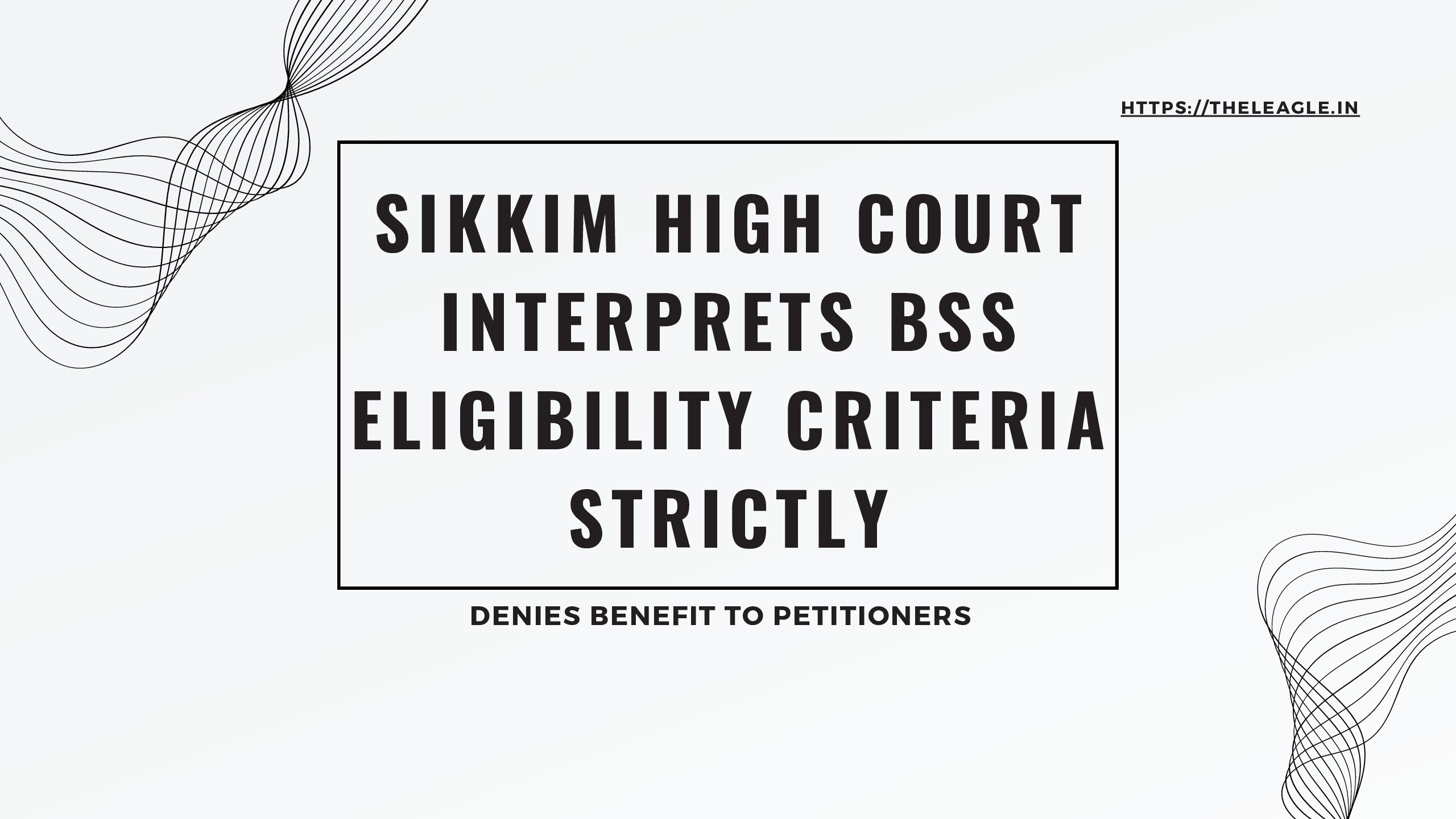In an interesting judgment[1], the Sikkim High Court interpreted eligibility criteria for the budgetary support scheme (‘BSS’) and denied petitioners BSS benefit because of change in ownership and constitution of the relevant business units. The petitioners claim that BSS was aimed at eligible units and not persons was rejected by the High Court. The High Court reasoned that the BSS was a concession to the persons who had made the initial investment in the State and change in ownership and constitution would amount to new persons coming into existence who were not provided the original tax benefits and thus the new entities were not eligible for BSS.
Facts
The case involved two petitioners: first petitioner concerned a partnership firm which was converted into a company and sought BSS for the remaining period that the partnership firm was entitled; second petitioner concerned a company was transferred by way of slump sale and the new company sought BSS for the remaining period that the transferee company was entitled. The petitioners admitted that the change in constitution and ownership resulted in new Unique Identity (‘UID’) and registration number for the resulting units. The main arguments of the petitioner were that the change in constitution of the business or change in ownership does not make them ineligible as BSS is provided to the eligible units and not to the owners thereof.
The State, on the other hand, argued that the new businesses with a new GST Registration Number and UID constituted a new person, and the new persons cannot claim BSS without making investment in the State and thereby cannot be considered as ‘eligible units’ under the BSS.
High Court Denies BSS to the Petitioners
The Sikkim High Court elaborated on the need and rationale for BSS and why tax benefits provided to manufacturing units under the excise duty regime had to be stopped after the introduction of GST. And that BSS was a concession to the taxpayers aimed to provide them tax benefits even under the GST regime for the residual period of original tax benefit. The High Court examined the terms ‘eligible unit’ and ‘residual period’, ‘manufacturer’ and ‘person’ as defined under the BSS and relevant provisions of the CGST Act, 2017 to state that:
Paragraph 7.1 of the Budgetary Support Scheme mandates the manufacturer to file the application for budgetary support. The definition of “eligible unit” in Paragraph 4.1 also provides that the application must have reference to either the Central Excise registration number of the eligible manufacturing unit as it existed prior to migration to GST or GST registration for the premises as a place of business where manufacturing activities under the exemption notification no.49/2003-CE dated 10.06.2003 and 50/2003-CE dated 10.06.2003 were being cleared. This was definitely related to the manufacturer or the “person” registered. (para 37)
The Sikkim High Court, as is evident from the paragraph cited above was placing emphasis on the person who files for the BSS and not on the unit per se. But in its subsequent observations, the High Court tends to use the terms ‘eligible unit’ and ‘person’ almost interchangeably. For example, it stated that the tax exemption was provided to manufacturers who made investments in the State and thereby BSS was extended to those eligible units from whom tax exemption was withdrawn prematurely. (para 38) It is an indication that even the High Court despite its effort to draw a distinction between the owners and eligible units was not able to maintain the distinction consistently. And this is the major flaw of this judgment.
Conclusion The Sikkim High Court concluded that the two petitioners, i.e., the new company and the new owner respectively were separate and distinct persons from the previous entities and could not have filed applications under the BSS. However, its observation that the benefits was for the manufacturers and was extended to their units does not have analytical heft. It is true that applications for tax exemptions under BSS are required to be filed by persons, and the new entities became different ‘persons’, but despite change in their constitution/ownership the units were the ones in which the original manufacturers had invested. While the State, in public interest, or otherwise, has discretion to cease providing tax benefits if there is change in ownership; but, in this case the High Court’s observations did not align with the relevant provisions of the BSS. This is especially since its emphasis on persons and not eligible units was not based on a sound reasoning and interpretation.
[1] Zydus Wellness Products Ltd v Union of India W.P.(C) No. 20 of 2022, available at https://www.livelaw.in/pdf_upload/zydus-wellness-products-limited-492279.pdf (Accessed on 16 September 2023).
